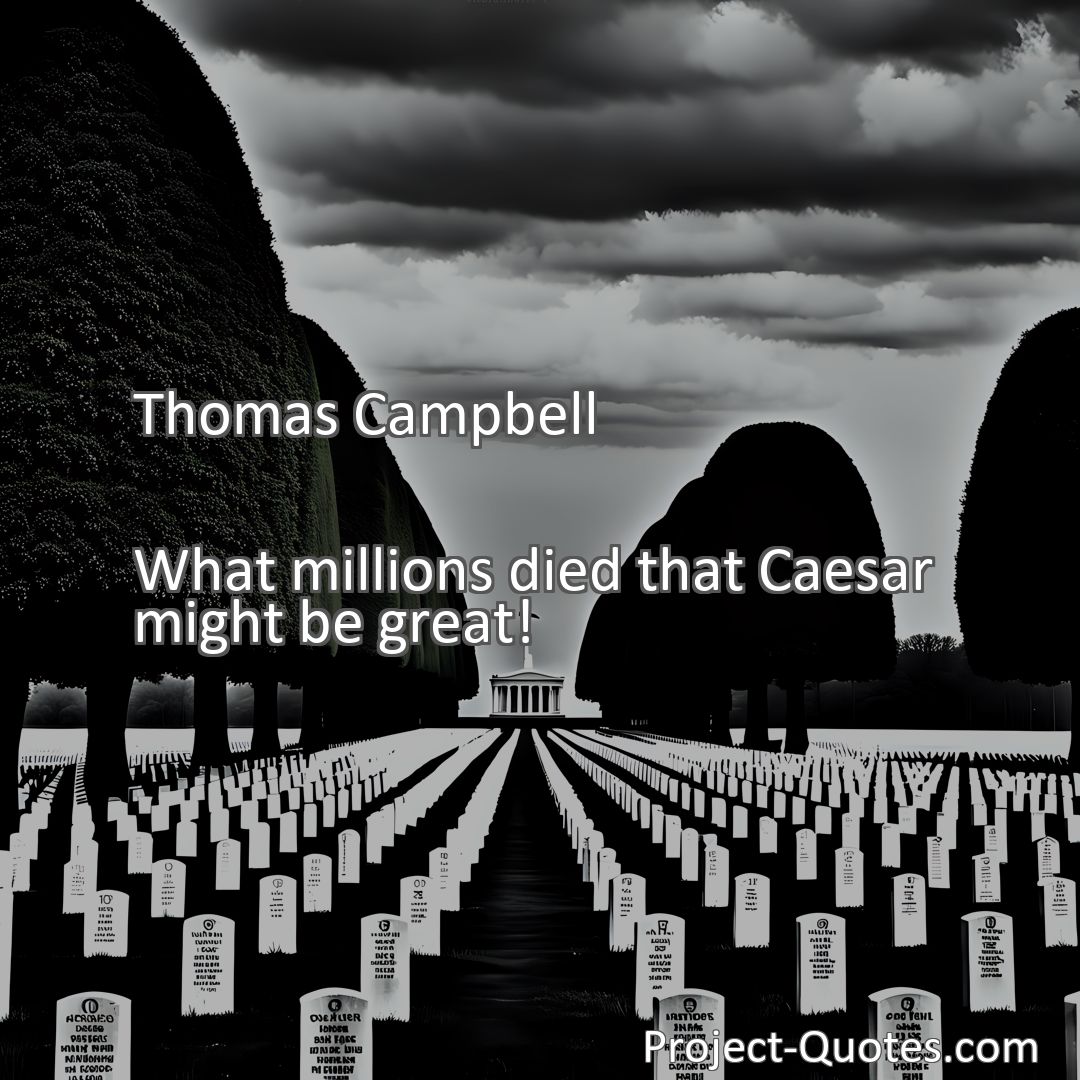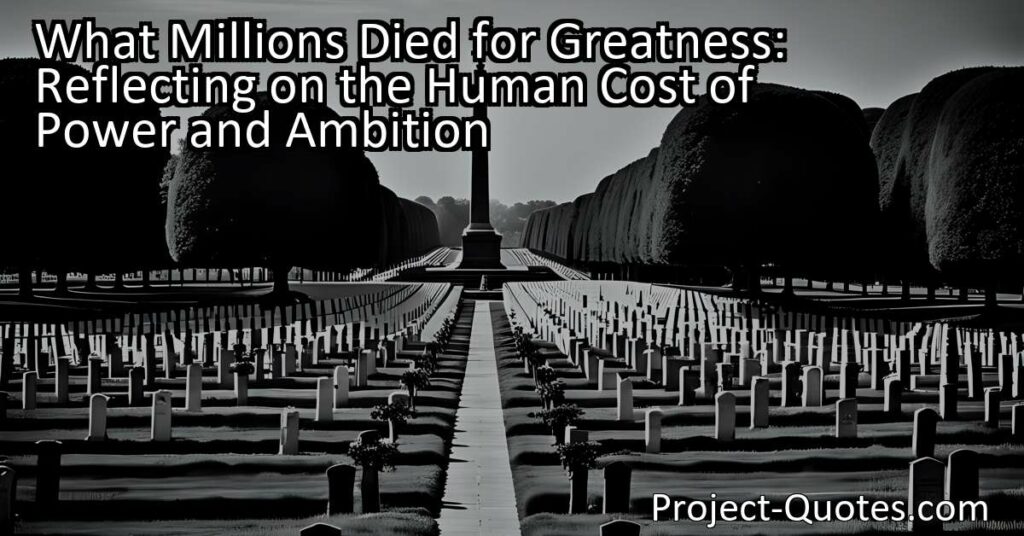What millions died that Caesar might be great!
Thomas Campbell
Thomas Campbell’s quote, “What millions died that Caesar might be great!” raises the topic of the human cost of power and ambition. It reminds us of the sacrifices made throughout history to fulfill the ambitions of leaders, prompting us to question the morality and necessity of such sacrifices. It challenges us to strive for a world where greatness can be achieved without causing immense suffering.
Table of Contents
Meaning of Quote – What millions died that Caesar might be great!
In his thought-provoking quote, “What millions died that Caesar might be great!” Thomas Campbell raises a powerful point about the sacrifices that are often made to fulfill the ambitions of individuals in positions of power. Through these words, Campbell invites us to reflect on the countless lives lost and the immense suffering endured to fuel the aspirations of leaders throughout history.
The quote, taken from Campbell’s poem titled “The Pleasures of Hope,” is a poignant commentary on the human cost of achieving greatness. It encapsulates the paradoxical nature of power, where the elevation of one often comes at the expense of many. With just nine words, Campbell captures the magnitude of the sacrifices made to build or sustain the empires of ambitious individuals like Caesar.
To fully comprehend the weight of Campbell’s observation, it is crucial to delve into the historical context in which he penned these words. Born in 1777, Campbell lived during a time of political unrest and significant social changes, witnessing the rise of charismatic leaders and the upheaval caused by their actions. He was also witness to the devastating consequences of wars and conquests, where millions lost their lives as a result of unchecked ambition.
When contemplating the sacrifices made for the sake of an individual’s greatness, it is important to recognize that this is an enduring theme throughout history. The narrative of individuals using power, charisma, and even coercion to fulfill their ambitions can be found in countless epochs. This pattern is rooted in the human desire for recognition, power, and influence.
Campbell’s quote forces us to question the necessity and morality of these actions. What justifications can sufficiently explain the magnitude of the loss of life, the shattered families, and the profound suffering of ordinary people whose voices are silenced by the march of history? Is the pursuit of greatness at any cost truly worth the immense price it demands?
The story of Julius Caesar provides a historical lens to better understand the sentiment behind Campbell’s words. Caesar was a Roman general, statesman, and dictator who played a central role in the transformation of the Roman Republic into the Roman Empire. Widely regarded as one of history’s most influential figures, Caesar’s ambition and political prowess propelled him to the pinnacle of power. However, his ascent was not devoid of human cost.
As Caesar pursued his ambitions, millions suffered and died. The conquests that enriched his empire were fueled by wars that claimed countless lives. The fall of the Roman Republic, a consequence of Caesar’s actions, brought about extensive political instability and social unrest. The repercussions of his rise to power were felt for generations. Campbell’s quote serves as a potent reminder of the price that was paid for Caesar’s greatness.
Beyond the specific examples of Caesar and the Roman Empire, Campbell’s quote resonates with the broader themes of human history. It echoes the countless wars, revolutions, and conflicts that have shaped our world. From the great conquerors who reshaped continents to the tyrants who oppressed their people, the notion of greatness often comes hand in hand with immense suffering.
However, it is vital to remember that not all individuals who aspire to greatness are fueled by selfish motives. Throughout history, there have been leaders who have genuinely sought to uplift their people and enhance the well-being of their societies. These individuals have endeavored to achieve greatness without sacrificing the lives and happiness of others.
In conclusion, Thomas Campbell’s powerful quote, “What millions died that Caesar might be great!” serves as a sobering reminder of the steep price often paid in the pursuit of greatness. It forces us to reflect on the sacrifices made by countless individuals throughout history to fulfill the ambitions of charismatic leaders. This quote encapsulates the universal theme of the human cost of power and ambition, prompting us to question the morality and necessity of such sacrifices. Campbell’s words challenge us to strive for a world where greatness is achieved without causing immense suffering, where leaders uplift their societies rather than leaving behind a trail of destruction.
I hope this quote inspired image brings you hope and peace. Share it with someone who needs it today!


